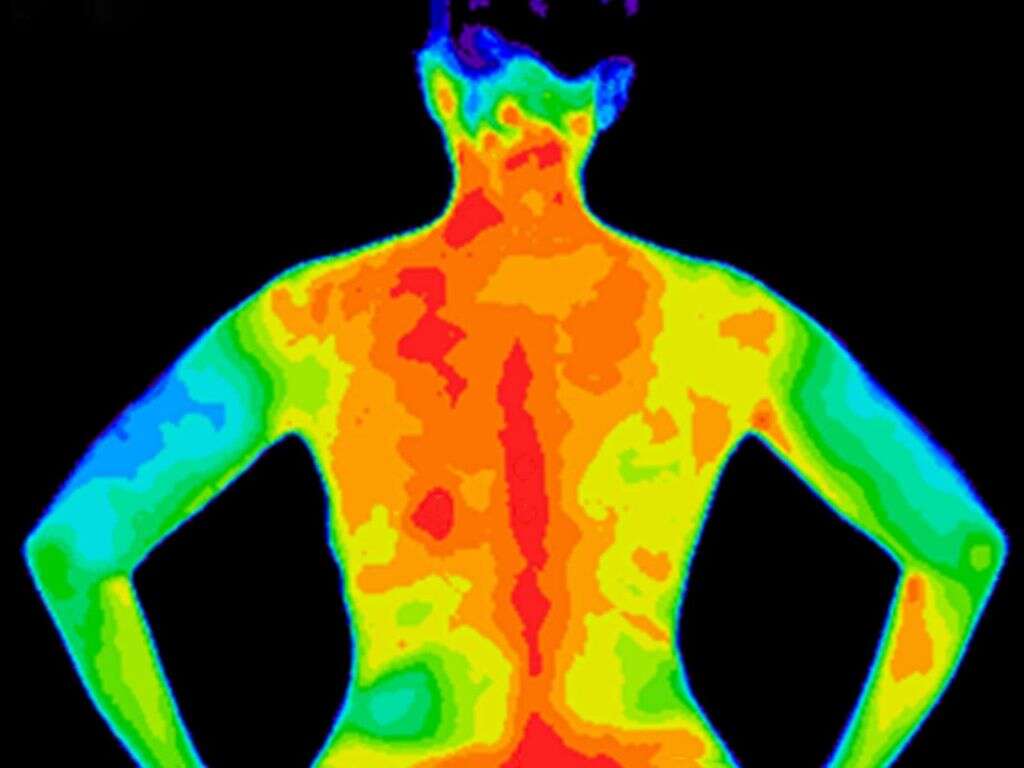10 Gluten Intolerance Symptoms
 Article Sources
Article Sources
- 1. Non-Celiac Gluten/Wheat Sensitivity.' _Celiac Disease Foundation_, celiac.org/about-celiac-disease/related-conditions/non-celiac-wheat-gluten-sensitivity/.
- 2. Di Stefano M;Pesatori EV;Manfredi GF;De Amici M;Grandi G;Gabriele A;Iozzi D;Di Fede G; 'Non-Celiac Gluten Sensitivity in Patients with Severe Abdominal Pain and Bloating: The Accuracy of ALCAT 5.' _Clinical Nutrition ESPEN_, U.S. National Library of Medicine, pubmed.ncbi.nlm.nih.gov/30390869/.
- 3. https://www.ncbi.nlm.nih.gov/pmc/articles/PMC7454984
- 4. Peters SL;Biesiekierski JR;Yelland GW;Muir JG;Gibson PR; 'Randomised Clinical Trial: Gluten May Cause Depression in Subjects with Non-Coeliac Gluten Sensitivity - an Exploratory Clinical Study.' _Alimentary Pharmacology & Therapeutics_, U.S. National Library of Medicine, pubmed.ncbi.nlm.nih.gov/24689456/.
- 5. Volta U;Bardella MT;Calabrò A;Troncone R;Corazza GR; ; 'An Italian Prospective Multicenter Survey on Patients Suspected of Having Non-Celiac Gluten Sensitivity.' _BMC Medicine_, U.S. National Library of Medicine, pubmed.ncbi.nlm.nih.gov/24885375/.
- 6. Dimitrova AK;Ungaro RC;Lebwohl B;Lewis SK;Tennyson CA;Green MW;Babyatsky MW;Green PH; 'Prevalence of Migraine in Patients with Celiac Disease and Inflammatory Bowel Disease.' _Headache_, U.S. National Library of Medicine, pubmed.ncbi.nlm.nih.gov/23126519/.
Gluten is a protein molecule found in wheat and some other cereals. It gives pasta and bread their sticky and elastic texture, allowing their doughs to be kneaded into various shapes. But for 15% of the U.S. population with gluten intolerance, it offers a different menu.1Non-Celiac Gluten/Wheat Sensitivity.’ Celiac Disease Foundation, celiac.org/about-celiac-disease/related-conditions/non-celiac-wheat-gluten-sensitivity/. One with an unpleasant selection of symptoms that can last for days. Sufferers have even coined a term, glutened, for the food attack that follows ingestion.
Treating gluten intolerance can be challenging. There are limited tests for it, and many of its symptoms are present in other conditions, so sufferers are often left guessing what’s wrong.

1. Gluten Intolerance vs. Celiac Disease Symptoms
More than 55 health conditions across the whole body are linked to gluten intolerance. Most of the research on these effects comes from studies on celiac disease. Despite sharing the same underlying gluten trigger, celiac disease is notably different from gluten intolerance. Unlike celiac disease, gluten intolerance does not cause changes to the lining of the small intestine on standard tests..
Interestingly, however, it has almost identical symptoms to gluten intolerance.1Non-Celiac Gluten/Wheat Sensitivity.’ Celiac Disease Foundation, celiac.org/about-celiac-disease/related-conditions/non-celiac-wheat-gluten-sensitivity/. These include abdominal pain, skin and joint issues, as well as effects on mood. These signs tend to appear within hours of someone eating gluten and can last for several days if severe.

2. Bloating
For most people, an uncomfortably full stomach only happens after a huge meal. For gluten intolerant people, bloating is common after accidentally eating wheat products.2Di Stefano M;Pesatori EV;Manfredi GF;De Amici M;Grandi G;Gabriele A;Iozzi D;Di Fede G; ‘Non-Celiac Gluten Sensitivity in Patients with Severe Abdominal Pain and Bloating: The Accuracy of ALCAT 5.’ Clinical Nutrition ESPEN, U.S. National Library of Medicine, pubmed.ncbi.nlm.nih.gov/30390869/.The uncomfortable sensation is often accompanied by visible swelling and can happen with just a small amount of food.
This symptom occurs when the body struggles to process gluten ingredients, resulting in the gas that causes swelling. Unlike normal indigestion, this bloating can last up to a few days.

3. Brain Fog
Gluten-induced brain fog is a commonly reported symptom and often comes before intense tiredness3https://www.ncbi.nlm.nih.gov/pmc/articles/PMC7454984. When the fog descends, sufferers experience a hazy mental state where simple tasks need significant concentration. Some sufferers even report that their words come out incorrectly. Those in jobs with a lot of mental application or creativity can suffer when their thinking slows down.
The exact cause of brain fog is unknown. It’s thought it may be caused by inflammation and an immune system reaction to gluten.

4. Exhaustion
Extreme tiredness often follows brain fog as a symptom. Sufferers feel drained of energy, and small tasks turn into challenging chores. The sluggishness has been compared to the effects of a sleeping pill, resulting in an overwhelming urge to lie down and nap.
Like brain fog, the exact cause is still to be discovered. One theory is that the fatigue is due to an inflammatory reaction caused by sensitivity to gluten. The only treatment so far discovered is to wait for the sensation to pass.

5. Depression and Anxiety
The science behind glutens’ influence on brain chemistry is still developing4Peters SL;Biesiekierski JR;Yelland GW;Muir JG;Gibson PR; ‘Randomised Clinical Trial: Gluten May Cause Depression in Subjects with Non-Coeliac Gluten Sensitivity - an Exploratory Clinical Study.’ Alimentary Pharmacology & Therapeutics, U.S. National Library of Medicine, pubmed.ncbi.nlm.nih.gov/24689456/.. People with gluten sensitivity, however, are well aware of a gut and brain connection. Some affected report angry, irritable emotions with a pounding heartbeat and a sense of unease after they eat gluten.
This makes these already distressing symptoms seem worse and can lead to a vicious circle of worry. The symptom often lasts for hours and can make it hard to reason that gluten is the cause.

6. Stomach Cramps
Stabbing abdominal aches are a known gluten intolerance symptom, with up to 50 percent experiencing this pain5Volta U;Bardella MT;Calabrò A;Troncone R;Corazza GR; ; ‘An Italian Prospective Multicenter Survey on Patients Suspected of Having Non-Celiac Gluten Sensitivity.’ BMC Medicine, U.S. National Library of Medicine, pubmed.ncbi.nlm.nih.gov/24885375/.. The spectrum of discomfort can vary. For some, it feels like intense cramps in the same area. For others, it starts in the stomach before moving quickly down to the intestines.
At its worst, the abdomen is tender to the touch and the affected person is unable to move. This symptom is similar to those of irritable bowel syndrome or Crohn’s disease.

7. Diarrhea
Loose, watery bowel movements and explosive diarrhea often go hand in hand with stomach pain for gluten intolerant people. The cramping and spasms in the digestive tract force food to move too quickly through the body. As a result, it’s purged out before it can be properly digested.
These symptoms can happen with little warning are often the most distressing for sufferers. It can leave them anxious about where the nearest restroom is whenever they go out for a meal.

8. Headaches and Migraine
People with gluten intolerance may experience recurring severe headaches. One study found that 56% of people with gluten sensitivity experienced headaches.6Dimitrova AK;Ungaro RC;Lebwohl B;Lewis SK;Tennyson CA;Green MW;Babyatsky MW;Green PH; ‘Prevalence of Migraine in Patients with Celiac Disease and Inflammatory Bowel Disease.’ Headache, U.S. National Library of Medicine, pubmed.ncbi.nlm.nih.gov/23126519/. Like the other symptoms, headaches or migraines can develop suddenly often acting as a warning.
The gut is also called the second brain as it contains numerous nerve cells and is connected with the brain via the gut-brain axis. The gut flora also influences the mood and brain health. That’s why digestive conditions are often associated with brain symptoms like anxiety or migraines.

9. Skin Problems and Joint Pain
Gluten intolerance symptoms don’t stop at exhaustion, stomach issues and headaches. People with this condition frequently exhibit sudden skin conditions such as dry patches, increased eczema and itchy rashes. Gluten exposure may cause inflammation in sensitive individuals, resulting in joint pain all over the body that wasn’t there previously.
These symptoms are similar to auto-immune conditions or allergies, where the body overreacts to a threat. Thankfully, skin and joint issues improve with a gluten free diet, in some cases.

10. Treated with Dietary Changes
The symptoms of gluten intolerance can be varied and distressing. People with the condition can find it difficult to get a diagnosis and are often left wondering what’s causing the range of sudden symptoms.
If medically suitable, the most effective current way to combat this food sensitivity is a diet free of this problematic protein. Many people with gluten intolerance report a dramatic improvement in symptoms with this approach. The growing number of gluten-free options available also makes it easier than ever before.










